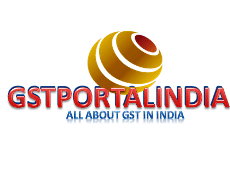| Allahabad Bank | 9.05% – 13.65% | Minimum Loan Amount – INR 50,000 Maximum Loan Amount – 12 times of gross monthly salary for employees having a monthly remuneration of INR 15,000 – INR 20,000 24 times the gross monthly salary for individuals earning above INR 20,000. The maximum loan amount, however, won’t exceed INR 7.50 lakh | 1.22% of loan Amount, Minimum INR 1,228 | Depends on the internal policy of the bank |
| Andhra Bank | 8.90% – 13.00% | Salaried – The loan amount is set in a way that the take-home income is not less than 40% of the gross salary after all the deductions, including the proposed EMI Non-salaried – 2 times the average annual income for the past 3 years as per the Income Tax Return (ITR) | As Applicable | Depends on the internal policy of the bank |
| Axis Bank | 10.25% – 21.00% | INR 50,000 – INR 15,00,000 | 1.50%-2.00% of the loan amount plus applicable GST | |
| Bajaj Finserv | 14.00% – 16.00% | Up to INR 25,00,000 | Up to 3% of the loan amount | Within 24 hours |
| Bank of Baroda | 10.00% – 15.60% | Up to INR 10,00,000 for people residing in metros and urban areas Up to INR 5,00,000 for people living in semi-urban and rural areas
| 2% of the loan amount, subject to a minimum and maximum limit of INR 1,000 and INR 10,000, respectively. The fee will also include applicable GST | Depends on the internal policy of the bank |
| Bank of India | 10.35% – 12.35% | Up to INR 5,00,000 – INR 10,00,000 | 2% of the loan amount plus applicable GST | Depends on the internal policy of the bank |
| Bank of Maharashtra | 9.55% – 10.55% | Up to INR 5,00,000 – INR 10,00,000 | 1% of the loan amount plus GST, subject to a minimum of INR 1,000 | Depends on the internal policy of the bank |
| Canara Bank | 11.25% – 13.30% | Six months gross salary or INR 3,00,000, whichever is less | 0.50% of the loan amount, subject to a minimum and maximum of INR 1,000 and INR 5,000 respectively | Sanctions at Branch/RAH – 7 Days Sanctions at Circle – 15 Days Sanctions at HO – 2-3 weeks |
| Central Bank of India | 9.85% – 10.05% | 20 times of gross salary, subject to a maximum of INR 10,00,000. The minimum net take-home income must not fall below 40% of the gross salary after deductions, including the proposed EMI | INR 500 + applicable GST | Depends on the internal policy of the bank |
| Citibank | 9.99% – 16.49% | Up to INR 30,00,000 | Up to 3% of the loan amount | Within 48 hours |
| Corporation Bank | 8.90% – 13.00% | Upto INR 3,50,000 | 1.50% of the loan amount, subject to a minimum of INR 500 | Depends on the internal policy of the bank |
| Dena Bank | 10.00% – 15.60% | Up to INR 10,00,000 for people residing in metros and urban areas Up to INR 5,00,000 for people living in semi-urban and rural areas | 2% of the loan amount, subject to a minimum and maximum limit of INR 1,000 and INR 10,000, respectively. The fee will also include applicable GST | Depends on the internal policy of the bank |
| DCB Bank | 13.00% – 25.00% | Up to INR 5 lakh | 2% of the loan amount | Within 3-4 working days |
| Federal Bank | 10.49% – 17.99% | Upto INR 10 lakh | 0.50% of the loan amount | Depends on the internal policy of the bank |
| HDFC Bank | 10.25% – 17.00% | There’s no maximum limit. Your income, credit score, and repayment capacity will dictate the loan amount | NIL-2.50% of the loan amount plus applicable GST | Within 3-4 working days |
| HSBC | 9.99% – 14.00% | Up to INR 30 lakh | Up to 1% of the loan amount | Within 15 days post the receipt of the application form |
| ICICI Bank | 10.50% onwards | Up to INR 40 lakh | INR 999 -2.25% of the loan amount+ applicable GST | Within 72 hours of the submission of documents |
| IDBI Bank | 9.50% – 14.00% | Up to INR 10 lakh | As applicable | Depends on the internal policy of the bank |
| IndusInd Bank | 11.00% Onwards | Up to INR 15 lakh | 1%-3% of the loan amount plus applicable GST | Within 4-7 working days post receipt of the documents |
| Jammu & Kashmir Bank | 10.30% | Up to 36 months gross salary | NIL | Depends on the internal policy of the bank |
| Karnataka Bank | 12.35% | Up to INR 5 lakh | 0.50% of the loan amount | Depends on the internal policy of the bank |
| Karur Vysya Bank | 11% – 19.00% | Up to INR 10 lakh | 1% of the loan amount | In-principle sanction – 15 minutes |
| Kotak Mahindra Bank | 10.25% Onwards | Up to INR 20 lakh | 0.99%-2.50% of the loan amount plus applicable GST | Within 10 working days |
| Lakshmi Vilas Bank | 11.55% | Up to INR 20 lakh | 0.25% of the loan amount, subject to a minimum of INR 2,500 plus applicable GST | Depends on the internal policy of the bank |
| Nainital Bank | 10.00% – 10.50% | 15 times of net take-home salary, subject to a maximum of INR 3-5 lakh 2 times of average annual income of last 2 years, subject to a maximum of INR 2 lakh for self-employed | 0.50%-1.00% of the loan amount plus applicable GST | Depends on the internal policy of the bank |
| Oriental Bank of Commerce | 8.95% – 14.00% | 15 times of gross salary, subject to a maximum of INR 10 lakh | 0.50% of the loan amount, subject to a minimum of INR 500, plus applicable GST | Depends on the internal policy of the bank |
| Punjab & Sind Bank | 11.10% | Up to 18 times of net monthly salary or INR 3 lakh, whichever is less | 1% of the loan amount plus applicable GST | Depends on the internal policy of the bank |
| RBL Bank | 17.50% – 26.00% | Up to INR 20 lakh | 2%-2.50% of the loan amount | Depends on the internal policy of the bank |
| Punjab National Bank (PNB) | 8.95% – 14.00% | 20 times of net monthly salary or INR 4 lakh, whichever is lower | 1.80% of the loan amount plus applicable GST | Depends on the internal policy of the bank |
| State Bank of India (SBI) | 9.60% – 13.60% | Up to INR 20 lakh | 1% of the loan amount plus applicable GST | Depends on the internal policy of the bank |
| Standard Chartered Bank | 11%-12.50% | Up to INR 50 lakh | 1% of the loan amount plus applicable GST | Within 4-7 working days post receipt of the documents |
| Syndicate Bank | 11.25% – 13.30% | Salaried – 12 months gross salary, subject to a maximum of INR 4-5 lakh Self-employed – upto INR 5 lakh | 0.50% of the loan amount, subject to a minimum of INR 500 plus applicable GST | Depends on the internal policy of the bank |
| UCO Bank | 8.45% – 10.45% | 10 times of gross monthly salary, subject to a maximum of INR 10 lakh | 1% of the loan amount, subject to a minimum of INR 750, plus applicable GST | Depends on the internal policy of the bank |
| United Bank of India | 8.95% – 14.00% | 10 months gross salary or INR 2 lakh, whichever is less | 1% of the loan amount plus applicable GST | Depends on the internal policy of the bank |
| Vijaya Bank | 10.00% – 15.60% | Up to INR 10,00,000 for people residing in metros and urban areas Up to INR 5,00,000 for people living in semi-urban and rural areas | 2% of the loan amount, subject to a minimum and maximum limit of INR 1,000 and INR 10,000 respectively. The fee will also include applicable GST | Depends on the internal policy of the bank |
| YES BANK | 10.70% Onwards | Up to INR 40 lakh | Up to 2.50% of the loan amount subject to a minimum of INR 999 plus applicable GST | Within 5 days from the receipt of the application |
| Tata Capital | 10.49% – 14.25% | Up to INR 25 lakh | INR 999-2.50% of the loan amount plus applicable GST | Within 72 hours from the receipt of the application |
| Fullerton India | 12.00% – 25.00% | Up to INR 25 lakh | 2% of the loan amount plus applicable GST | Within 30 minutes of loan approval |


